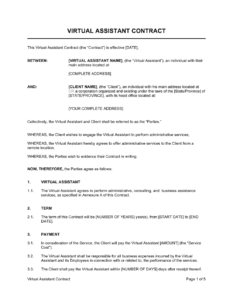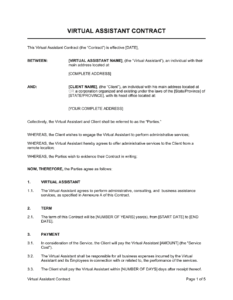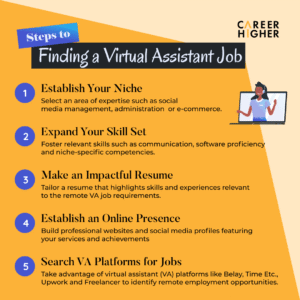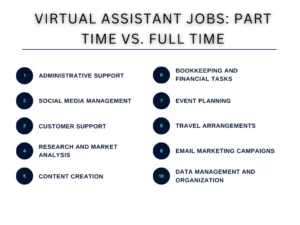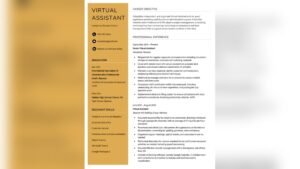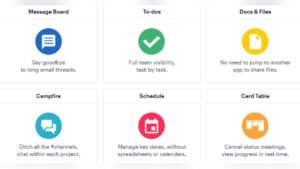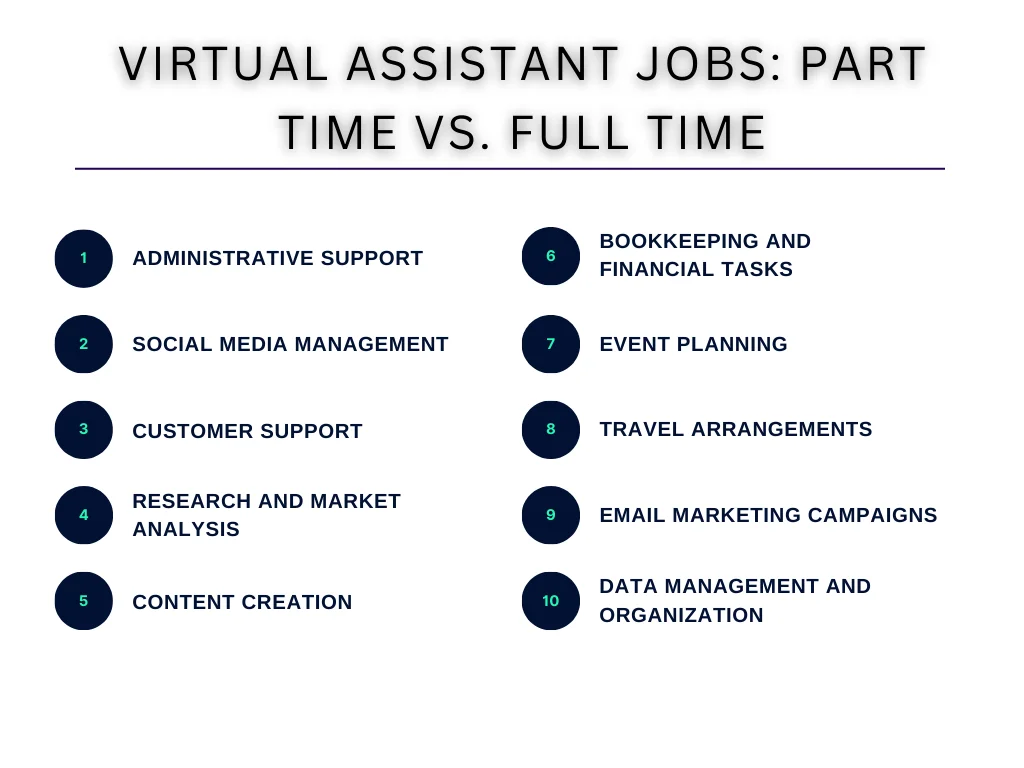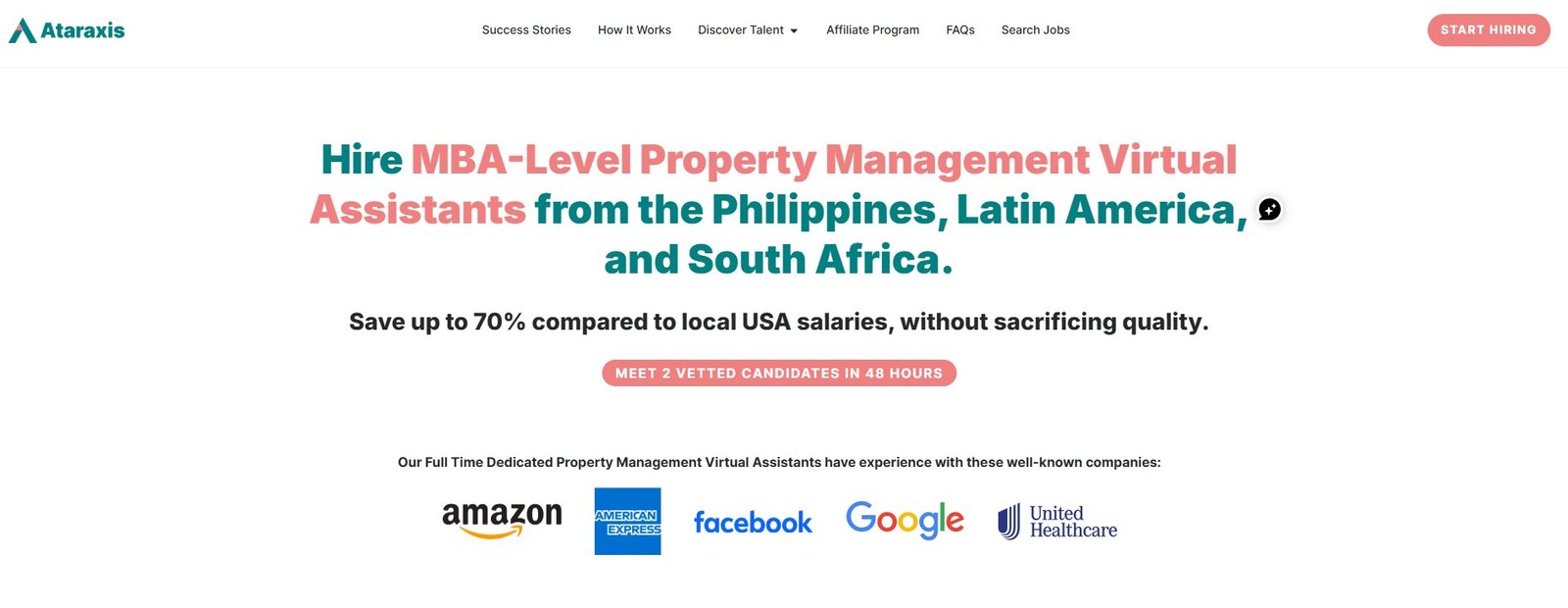Remote jobs are more popular than ever. Networking is key to landing one.
In a world where remote work is becoming the norm, finding ways to connect with potential employers and fellow professionals is crucial. Networking can open doors to opportunities you might not find on job boards. It helps build relationships and trust, leading to a successful remote career. You may wonder how to start networking effectively for remote jobs. This guide will help you navigate this new job market. You’ll learn tips and strategies to connect with the right people and maximize your chances of success. For a reliable site to find remote jobs, consider FlexJobs. Let’s dive in and explore the best networking practices for remote job seekers.
Introduction To Networking For Remote Jobs
Remote work opportunities have grown significantly in recent years. To stand out, networking is key. This blog post will explore why networking is crucial for those seeking remote jobs.
The Rise Of Remote Work
The trend of remote work is increasing. More companies are offering flexible work arrangements. This shift allows employees to work from anywhere. It also creates more job opportunities globally.
Remote work appeals to many people. It offers flexibility and a better work-life balance. As a result, the demand for remote jobs has soared. Understanding this trend is important for job seekers.
Why Networking Is Crucial For Remote Job Seekers
Networking can open doors to job opportunities. It is essential for remote job seekers. Here are some reasons why:
- Access to Hidden Job Markets: Many jobs are not advertised. Networking helps you discover these hidden opportunities.
- Building Relationships: Connections can lead to job referrals. People prefer hiring someone they know or trust.
- Gaining Insights: Networking provides valuable industry insights. It helps you understand the job market better.
Networking can be done in many ways. Attend virtual events, join online communities, and connect on social media platforms. These methods can help you build a strong professional network.
FlexJobs is a great resource for finding remote jobs. Visit their website at FlexJobs for more information.

Credit: unremot.com
Building A Strong Online Presence
In the digital age, a robust online presence is essential for securing remote jobs. Hiring managers often search for candidates online. A professional profile can make a lasting impression. Below are steps to enhance your online presence.
Creating A Professional Linkedin Profile
LinkedIn is a powerful tool for job seekers. Start by ensuring your profile picture is professional. A clear, high-quality headshot is best.
- Headline: Craft a compelling headline that highlights your skills.
- Summary: Write a concise summary. Focus on your experience and achievements.
- Experience: List relevant work experiences in detail.
- Skills: Add skills that are in demand for remote jobs.
- Recommendations: Request recommendations from colleagues.
Optimizing Your Online Portfolio
An online portfolio showcases your work. It is crucial for roles requiring tangible outputs, like design or writing. Here are some tips:
- Choose a Platform: Use a platform like Behance or GitHub.
- Showcase Best Work: Highlight your best projects first.
- Details Matter: Include descriptions, tools used, and your role in each project.
- Keep it Updated: Regularly update your portfolio with new work.
- Make it Accessible: Ensure your portfolio is easy to navigate.
Engaging On Industry-specific Forums And Groups
Engagement in forums and groups can expand your network. It also keeps you updated on industry trends.
| Platform | Purpose |
|---|---|
| Join subreddits related to your field. | |
| Facebook Groups | Participate in relevant groups. Share insights and ask questions. |
| Slack Communities | Network with professionals. Engage in discussions and share knowledge. |
Active participation in these forums and groups can lead to job opportunities. Always be professional and respectful in your interactions.
Leveraging Social Media For Networking
Social media is a powerful tool for networking, especially for remote job seekers. It can help you connect with professionals and find job opportunities. Let’s explore how you can use different social media platforms to network effectively.
Using Twitter For Professional Connections
Twitter is a great platform to connect with industry professionals. Follow companies and influencers in your field. Engage with their content by liking, retweeting, and commenting. This increases your visibility and helps you build relationships.
Join Twitter chats related to your industry. Participate in discussions and share your insights. This showcases your expertise and helps you connect with like-minded professionals.
Create a professional Twitter profile. Use a clear photo, write a concise bio, and include a link to your portfolio or LinkedIn profile. This makes it easier for potential employers to learn more about you.
Joining Relevant Facebook And Linkedin Groups
Facebook and LinkedIn groups are valuable resources for networking. Join groups related to your industry or job interests. Participate in discussions, share valuable content, and ask questions.
On LinkedIn, you can also connect with group members. Send personalized connection requests and mention the group you both belong to. This can help you build meaningful connections.
Facebook groups often have job postings and networking events. Keep an eye on these opportunities and engage with the group regularly.
Utilizing Instagram And Other Visual Platforms
Instagram is not just for sharing photos. It can also be a powerful networking tool. Follow companies, influencers, and professionals in your industry. Engage with their content by liking, commenting, and sharing.
Use Instagram Stories to share your work, insights, and experiences. This can help you showcase your skills and attract potential employers.
Other visual platforms like Pinterest and Behance can also be useful for networking, especially for creative professionals. Share your work, engage with other users, and build your network.
Remember, the key to successful networking on social media is consistency and engagement. Regularly interact with others and share valuable content. This will help you build strong professional connections and find remote job opportunities.

Credit: www.youtube.com
Attending Virtual Networking Events
Networking for remote jobs can be challenging. Attending virtual networking events is a smart way to connect with professionals, learn new skills, and find job opportunities. These events offer a platform to meet industry experts and like-minded individuals from around the globe.
Finding Relevant Webinars And Online Conferences
To get started, search for webinars and online conferences in your field. Websites like Flexjobs list many events that cater to remote job seekers. You can also use social media, job boards, and professional groups to discover these events.
| Platform | Description |
|---|---|
| Flexjobs | A job site to find remote jobs. No ads, scams, or junk. |
| Professional networking site with event listings. | |
| Eventbrite | Online platform for discovering and managing events. |
How To Make The Most Out Of Virtual Events
Preparation is key. Research the speakers and topics before the event. Prepare a few questions to ask during Q&A sessions.
- Participate actively in discussions and chat rooms.
- Take notes on important points and key takeaways.
- Engage with other attendees through networking features.
Use these tips to stand out and make meaningful connections.
Following Up With Connections Post-event
After the event, follow up with the people you met. Send a personalized message or connect on LinkedIn. Mention something specific from your conversation to make your message memorable.
- Send a thank-you note to speakers and organizers.
- Reach out to new contacts with a personalized message.
- Join follow-up groups or forums if available.
Consistent follow-up helps build and maintain professional relationships.
Reaching Out To Industry Influencers
Networking is vital when searching for remote jobs. One effective strategy is reaching out to industry influencers. These individuals have a significant presence and can open doors to new opportunities. This section will guide you on how to identify key influencers, craft effective outreach messages, and build long-term relationships with them.
Identifying Key Influencers In Your Field
Finding the right influencers starts with research. Look for individuals who have a strong online presence in your industry. Use platforms like LinkedIn, Twitter, and industry-specific forums. These influencers often share valuable insights and have a large following.
- Search for keywords related to your field.
- Join relevant groups and forums.
- Follow industry leaders and note their engagement levels.
Crafting Effective Outreach Messages
When contacting an influencer, a well-crafted message is crucial. Keep your messages short and to the point. Personalize each message to show genuine interest. Highlight common interests or mutual connections.
| Do’s | Don’ts |
|---|---|
| Be concise and respectful. | Don’t send generic messages. |
| Mention common interests. | Don’t immediately ask for favors. |
Building Long-term Relationships With Influencers
Long-term relationships with influencers offer ongoing benefits. Engage with their content regularly. Share their posts, leave thoughtful comments, and offer your insights. This shows your commitment and helps build a rapport.
- Engage with their social media posts.
- Share their content with your network.
- Provide value through your expertise.
Remember, building relationships takes time. Consistency and genuine interaction are key.
Networking Through Remote Work Platforms
Networking is crucial for landing remote jobs. Using remote work platforms can significantly increase your chances. These platforms connect job seekers with potential employers. They offer various tools to enhance your professional network.
Exploring Freelance Marketplaces
Freelance marketplaces are great for networking. Websites like Upwork and Fiverr offer many opportunities. They allow you to showcase your skills and connect with clients globally.
Benefits of Freelance Marketplaces:
- Access to a global talent pool
- Opportunities to build a diverse portfolio
- Chance to work on short-term and long-term projects
Creating a strong profile is important. Add a professional photo and detailed descriptions of your skills. Positive client reviews can help you stand out.
Joining Remote Job Boards And Communities
Remote job boards and communities are valuable for networking. Platforms like Flexjobs specialize in remote job listings. They ensure no ads, scams, or junk listings.
Top Remote Job Boards:
- Flexjobs
- We Work Remotely
- Remote.co
Joining these communities helps you stay updated on job openings. Engaging in discussions and forums can also help you connect with other professionals.
Utilizing Coworking Spaces And Online Communities
Coworking spaces and online communities offer unique networking opportunities. They provide a collaborative environment for remote workers.
Benefits of Coworking Spaces:
- Opportunities to meet other professionals
- Access to networking events and workshops
- Shared resources and amenities
Online communities such as LinkedIn groups and Slack channels are also valuable. They allow you to join discussions, share knowledge, and build professional relationships.
Maintaining And Nurturing Professional Relationships
Building a strong network is crucial for finding remote jobs. But it’s not just about making connections. Maintaining and nurturing these professional relationships is equally important. This section will guide you on how to keep your network active and beneficial for your career growth.
Regularly Updating Your Network
Regular updates are key to staying relevant. Inform your network about your latest projects, skills, or job changes. Use platforms like LinkedIn to share updates. This keeps you on their radar and shows your progress.
- Post about new skills or certifications.
- Share industry-related articles or insights.
- Update your profile regularly to reflect current information.
Offering Value And Assistance To Your Connections
Networking isn’t just about taking. Offer value to your connections. This could be through sharing useful information, recommending someone for a job, or providing assistance when needed. This builds trust and strengthens relationships.
- Share job openings or opportunities with your network.
- Offer to help with projects or provide feedback.
- Recommend tools or resources that can benefit them.
Keeping In Touch With Former Colleagues And Employers
Former colleagues and employers can be valuable contacts. Keep in touch with them. Send occasional messages or emails to check in. This maintains the relationship and keeps you in mind for future opportunities.
- Send a message during holidays or special occasions.
- Share updates about your career progress.
- Ask for advice or feedback on your work.
By following these steps, you can maintain a strong and active network. This will greatly benefit you in your search for remote jobs.
Conclusion: Unlocking Remote Work Opportunities Through Networking
Networking can open doors to remote work opportunities. Building connections in your industry is key. This section will explore the long-term benefits of effective networking and the importance of taking action and staying persistent.
The Long-term Benefits Of Effective Networking
Effective networking offers many long-term benefits:
- Access to Hidden Job Markets: Many remote jobs are not advertised. Networking can help you find these hidden opportunities.
- Building Professional Relationships: You can form lasting relationships with industry professionals. These connections can offer advice and job leads.
- Continuous Learning: Networking allows you to learn from others. You can stay updated on industry trends and best practices.
- Increased Visibility: By staying active in your network, you become more visible to potential employers. This can lead to job offers.
Taking Action And Staying Persistent
Networking requires consistent effort and persistence. Here are some steps to take action:
- Join Professional Groups: Participate in online forums and groups related to your field. Engage in discussions and share your expertise.
- Attend Virtual Events: Participate in webinars, conferences, and workshops. These events offer networking opportunities.
- Follow Up: After meeting someone new, follow up with a message or email. Maintain regular contact to build a strong relationship.
- Offer Help: Be willing to assist others in your network. This can build goodwill and reciprocity.
Staying persistent is crucial. Keep reaching out and engaging with your network. Over time, your efforts will pay off.

Credit: www.linkedin.com
Frequently Asked Questions
How Do You Network For Remote Jobs?
To network for remote jobs, join relevant online communities and forums. Connect with professionals on LinkedIn. Attend virtual industry events and webinars. Engage in conversations and share valuable insights. Reach out to recruiters and hiring managers directly.
Are There Remote Networking Jobs?
Yes, remote networking jobs are available. Many companies offer positions for network engineers, administrators, and analysts to work remotely.
Can You Work From Home In Networking?
Yes, you can work from home in networking. Use remote access tools, secure connections, and virtual collaboration platforms for efficiency.
What Is The Best Platform To Find Remote Jobs?
The best platform to find remote jobs is Remote. co. It offers diverse opportunities across various industries.
Conclusion
Building a strong network is vital for remote job success. Connect with professionals in your field. Use platforms like LinkedIn and join relevant groups. Attend virtual events and webinars to meet new contacts. Networking opens doors to hidden job opportunities. For a trusted job site, try Flexjobs. It offers quality remote job listings, free from scams or junk. Start networking today to boost your remote job search. Stay proactive and build meaningful connections. Your next job might be just one network away. Happy job hunting!
Ms.Sultana brings over 16 years of expertise working with global Clients by providing different skills and Services. For the last 5 years working as an Affiliate marketer, specializing in high-ticket campaigns that drive exponential growth. She holds a degree in Computer Science and Engineering as well as achieved many more skills certificates from different institute/academies/Platform. As part of the Elite Global Marketing team, Sultana has helped clients generate millions in revenue through strategic partnerships, innovative funnels, and data-driven insights.




